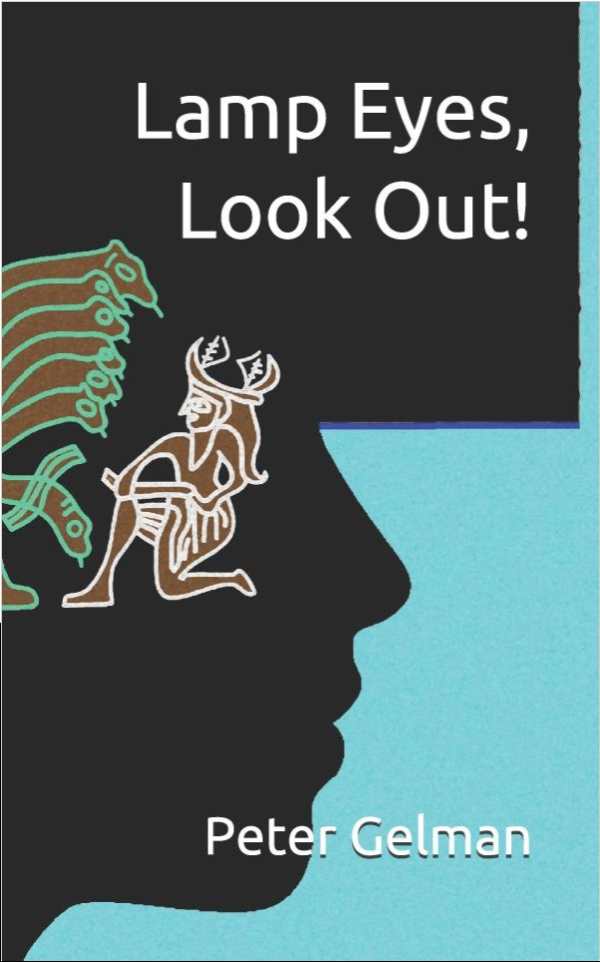Lamp Eyes, Look Out!
Lamp Eyes, Look Out! is an imaginative, often beautiful work of science fiction.
Peter Gelman’s Lamp Eyes, Look Out! is a poetic and abstract science-fiction response to the current political climate in the West.
Mixing Greek mythology with science-fiction standards, the novel is otherworldly. Its lead can see into the future; he tries to prevent the imminent death of his love, Alyssa, and the subsequent loss of his visions, known as M22F.
After he loses his visions, though, the narrator undergoes treatments that are hellish and extreme, which end up disabling him. The dreams he experiences while he is in treatment add humor and levity to the book’s heavy situations, though they at times feel out of place in their draining environments.
The plot bounces between the past, present, and future, often with no clear indications as to when its events happened, and often becomes confusing. Throughout the book, the narrator’s abstract thoughts lead to open-ended questions. Key plot points seem unresolved by the end; lingering questions go unanswered.
Each piece of this story is layered and dynamic; every word, conversation, and flashback functions in multiple ways, and not all are obvious upon the first read. It is crucial to sit with the text’s finer points to thoroughly understand its metaphors and symbols.
The book develops its characters uniquely, ignoring physical attributes in favor of tiny personality details, resulting in true insights into who each character is deep down. Quirks and idiosyncrasies dominate. The narrator operates with a disconcerting lack of emotion, but his tendency not to react demonstrates how his visions and dreams have had a severe, distinct effect on him.
The book’s language is poetically structured and often beautiful, and its dialogue is fascinating. Banter between characters is deeply philosophical, insightful, and thought provoking, though some conversations—such as one following a concert about how the music made the narrator and Alyssa feel—are hard to follow, bouncing between immediate and big-picture observations. Some connections and comparisons are intriguing but too abstract.
The text is rife with symbolism, to a point where it becomes unintelligible at times. The nuances of some observations don’t come to fruition until the ends of their chapters, making them difficult to follow. Greek gods and ancient history are commonly used as reference points to understand the story’s political and personal situations; the text risks holding those who are unfamiliar with such details at a distance.
Lamp Eyes, Look Out! is an imaginative, often beautiful work of science fiction.
Reviewed by
Katie Asher
Disclosure: This article is not an endorsement, but a review. The publisher of this book provided free copies of the book and paid a small fee to have their book reviewed by a professional reviewer. Foreword Reviews and Clarion Reviews make no guarantee that the publisher will receive a positive review. Foreword Magazine, Inc. is disclosing this in accordance with the Federal Trade Commission’s 16 CFR, Part 255.

